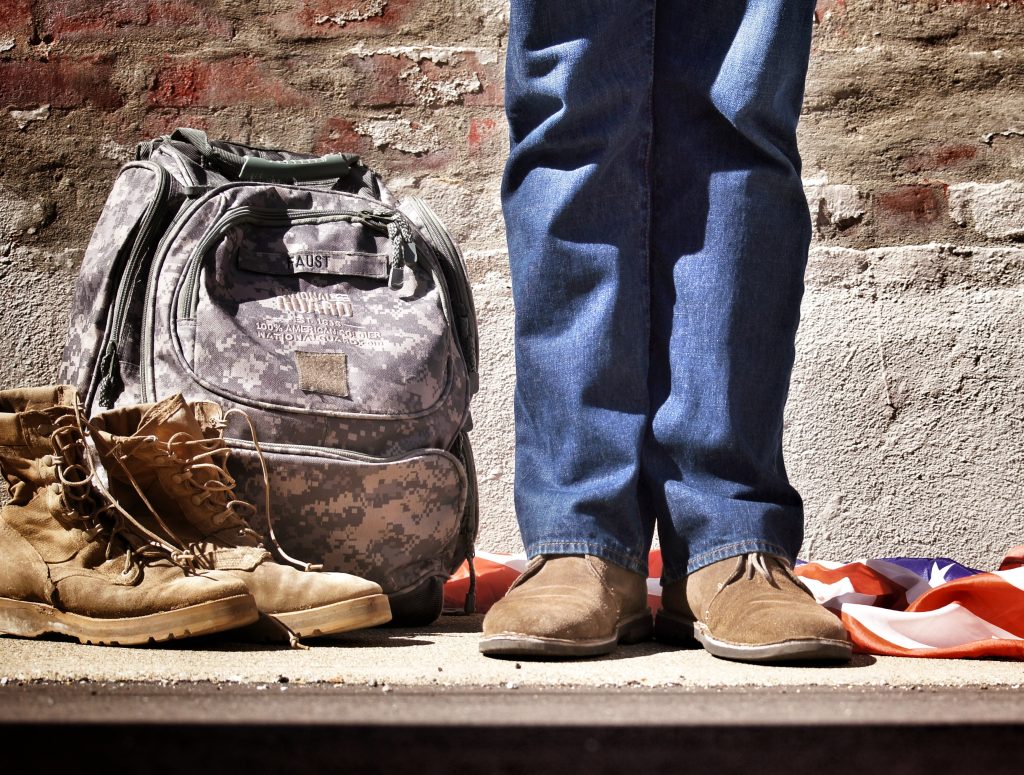
Upon exiting the military, veterans encounter unique challenges when transitioning to the civilian workforce. Housed at Duke University’s Fuqua School of Business, the Veteran Transitions Research Initiative (VTRI) conducts research that can help inform initiatives focused on enhancing veterans’ transition to the workforce. The VTRI’s work has received national attention and participation from Microsoft, Amazon, the Call of Duty Endowment, LinkedIn and several U.S. universities.
Aaron C. Kay, the J Rex Fuqua Professor of International Management at the Duke Fuqua School of Business, Sean Kelley, Duke Fuqua School of Business Faculty in Residence and David Sherman, professor of social psychology at the University of California, Santa Barbara (UCSB), co-lead the VRTI’s research efforts, centered around issues related to veteran hiring and bias. Stemming from his experience serving in the U.S. Navy, Kelley was motivated to break down barriers for his fellow veterans entering the civilian workforce.
In honor of Veterans Day and the important work the VTRI does for veterans, Kay answered five questions about his research on veteran hiring and bias:
What initially drove you to research veteran hiring and bias?
I’ve always studied issues related to discrimination, stereotyping and inequality from a social psychological lens. Much of my work has looked at those issues in the context of gender and also socio-economic status. Sean Kelley had taken an interest in my research on how wording choices in job advertisements can contribute to gender inequality in the applicant pool.
A few years later, he reached out to ask me what type of similar work there is on the psychological processes that affect how people treat military veterans in the workplace. Listening to Sean, it became clear to me this is a real social justice issue that needs attention. A post-doctoral student I was working with at the time, Steven Shepherd, and I started to research some of the ways people might unwittingly stereotype veterans. This research led to a publication showing that people view veterans as great fits for jobs that require a lot of doing but less adept for jobs that require feeling and relating to others. And we were off and running.
What is an example of a unique challenge that veterans face as they transition to civilian careers?
I tend to think of this more from the perspectives of the obstacles that veterans face that other, non-veterans, do not. The most glaring is stereotypes, or preconceptions people hold about military veterans. And, in particular, the beliefs they hold about veterans that, while maybe positive and seemingly complimentary, are nonetheless stereotypes. When an average hirer or manager learns an applicant or an employee is a veteran, what immediately comes to mind regarding their strengths? What do they assume (or presume) about that person’s motives, interests, and talents and, importantly, how do those presumptions affect the jobs they assign them to and where they get funneled? People tend to have a sense that negative beliefs are “stereotypes” and so they at least try to regulate them. But they often are unaware of the ways the positive or flattering preconceptions they hold about a group can also be restrictive which, ironically, can make them even more problematic. Much of our research is investigating what, specifically, these positive stereotypes look like and what effects they are having on employment outcomes.
What prompted you to start the Veterans Transitions Research Initiative and what are your plans for the future of the initiative?
There are many people doing wonderful important research on psychological and social issues related to veteran transitions. But the topic is not mainstream amongst researchers – like me – that generally investigate social justice, social inequality, discrimination and stereotyping. The point of the VTRI is to inspire more people to take up this issue in their research.
We – the VTRI, while located at Duke, is co-directed with David Sherman, a social psychologist at UCSB and Sean Kelley, an Executive in Residence at Fuqua – feel more minds are needed, and the VTRI seeks to encourage more social scientists, especially in psychology and organizational behavior, to integrate this population of military veterans and this issue more generally (veteran transitions) into their programs of research, and to test and develop their theories in this specific context. We are working hard on publishing highly visible work that makes this point and bringing people together – researchers with a wide range of experience working with veterans as well as industry partners – to learn from and inspire one another.
How can employers better support their veteran and military-affiliated employees?
One way to approach it is by looking towards other examples of programmatic research on transitions that have been successful at experimentally testing and implementing interventions on a wide scale, for example, through onboarding efforts with students from a wide range of backgrounds who are entering college. They have found that messages centered on how challenges – such as feeling as though one doesn’t belong at the institution – are common, experienced widely, but get better over time can help students succeed in the new environment, particularly when there are other aspects of the institution that are committed to the success of all students.
Are there ways the federal government can support your research or benefit from the findings of this research?
We have given a talk on our research at the Department of Defense’s Military-to-Civilian Transition Research Forum. This was a great experience as the forum brings together researchers from different disciplines – social psychology, industrial-organizational psychology, military psychology – as well as people from government and veteran-serving organizations. This forum would seem to be a great arena for the federal government to directly support and stimulate relevant research via funding grants.
By Saralyn Carcy, 11/10/21
